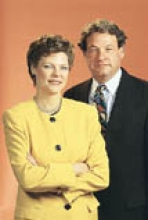Charges of polling bias hint at desperation
Are the polls biased in Barack Obama’s favor? Are the news media conspiring to rig the election for the president?
Looking at the facts, the only fair answer to both questions is “no.” But in today’s highly flammable political climate, facts themselves are suspect. Science is dismissed as one more example of partisan spin. Expertise and excellence are derided as elitist conventions.
Conservative frustration has risen in direct proportion to Obama’s widening lead in the polls (two points nationally but 11 points in swing states, according to the latest ABC News/Washington Post survey). “It goes without saying there is definitely a media bias,” Republican vice presidential candidate Paul Ryan told Fox News. Two dozen conservative activists accused the “biased news media” of a “brazen and complete attempt ... to decide the outcome of the election.” The website UnSkewedPolls.com proclaimed that Mitt Romney was actually winning by more than four points.
The reason for this panic is clear: Falling poll numbers sap energy from a campaign, discouraging contributors, volunteers and voters. As Republican pollster John McLaughlin told the National Review, the “intended effect” behind the pro-Obama plot “is to suppress Republican turnout through media polling bias.”
But that’s simply not true. If there really were such a conspiracy, why would the latest Fox News survey show Obama leading by five points? Is Fox part of the cabal? Or is the network trying to retain its reputation as a “fair and balanced” news source?








Comments